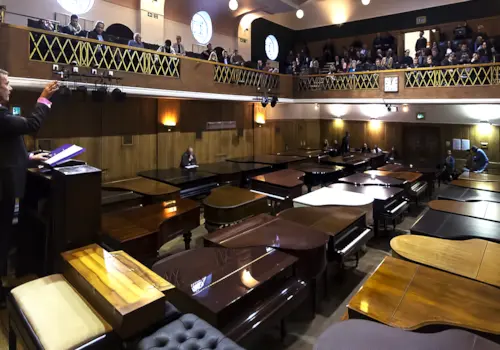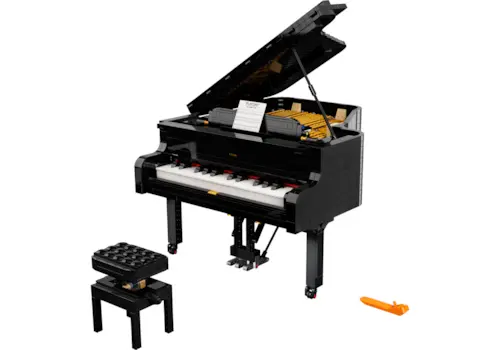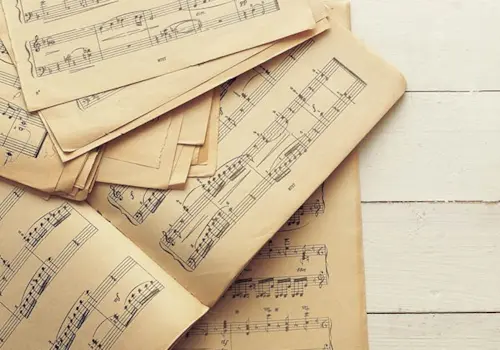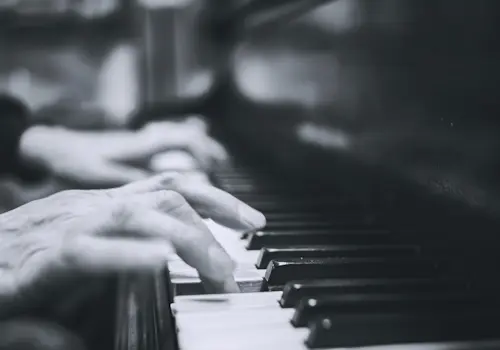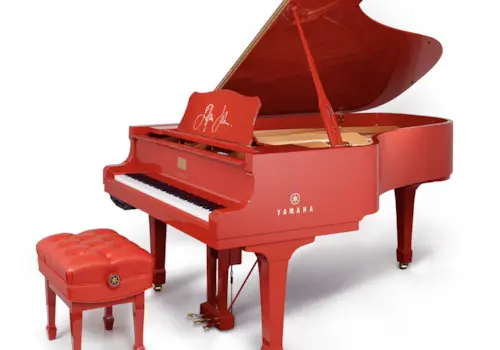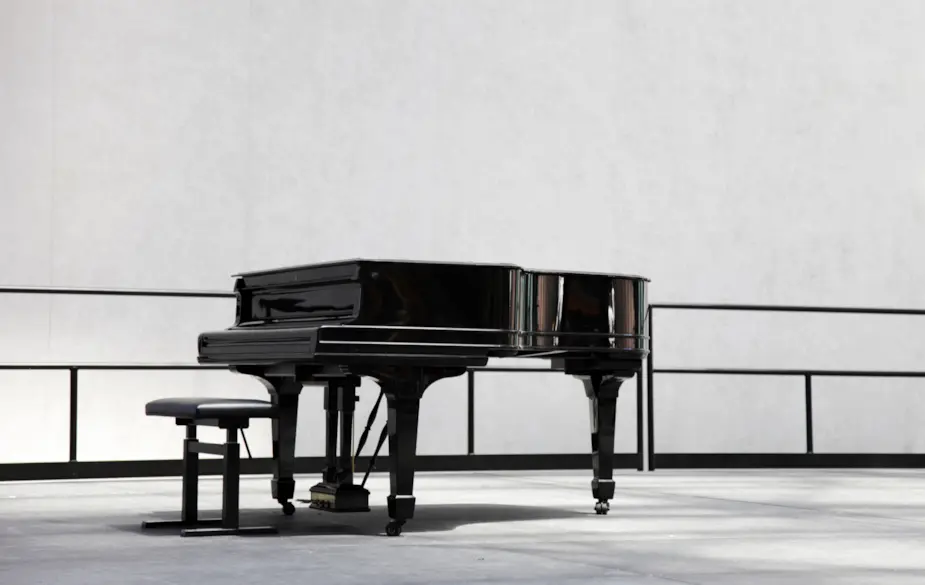Entered yourself into an Amateur Piano Competition? Nervous? Don't worry! We've put together our top tips to give you the perfect chance at achieving success
TIP 1: Practice makes perfect – Divide your pieces up into links
You need to make sure you are giving yourself the best chance right from the word go; and that means making sure you are practising your chosen pieces correctly and efficiently.
Below, Pianist contributor Graham Fitch gives a fantastic lesson on the art of practising correctly (part 1). He demonstrates how to divide your piece up into links in order to form a chain of phrases. This is also a great exercise for memorisation.
TIP 2: Try out the 'skeleton' method when learning your pieces
In a follow-up to the above lesson, Graham Fitch teaches the 'skeleton' method of practising. This involves taking a selected component of a piece of music and emitting one of the parts (or harmonies) of the music. Again, it's another fantastic method for making sure your pieces are as prepared as possible prior to the competition.
TIP 3: Playing from memory? Work without the score as soon as possible

If you are planning to compete without a score in front of you, it's important that you start practising without the score as soon as you possibly can.
"If you can do this from the very beginning, bar by bar, learning everything from the physical ‘feel’ of note patterns, fingerings and movement, to the required sound and musical details, you’ll find it easier to remember in the long run," says Pianist contributor Melanie Spanswick in her blog on Mastering Memorisation. "This is because you’re already taking the music off the page and allowing it to permeate your mind."
Using Graham's two videos in tips 1 and 2 will go a long way to helping you achieve the above.
TIP 4: Playing from a score? Be prepared for any and all eventualities

There is plenty to think about if you are planning to perform with a score in front of you: Are you playing from a book? Is your score on an iPad? How are you going to turn the page? It's exhausting to even think about!
There are risks that coming with playing from a score, such as the horrifying scenario of the pages dramatic falling off the stand and onto the stage, leaving you stumped with no clue how to continue. Even if you play from an iPad, you run the risk of technology failing you. However, there are things you can do to prevent such things happening:
- If you're playing from a book, make sure you've flattened out the pages as much as possible to prevent the book folding over on itself mid performance. Clip the pages back using a paperclip. Fold the bottom corner of each page in advance to help you turn the pages.
- We would recommend getting the score printed off onto high quality paper rather than playing from a book. Tape your pages together. Some pianists even tape their score to a piece of cardboard for an extra level of solidity. This option also saves the stress of page turning.
- Playing from an iPad? While technology can be temperamental, this is a good alternative choice to playing from paper. It goes without saying that you MUST make sure your iPad is either fully charged or plugged in when you take to the stage! Additionally, it's worth considering investing in a page turner pedal to avoid the stress of having to do it manually. The Donner Bluetooth Page Turner Pedal on Amazon is a great choice.
TIP 5: Practise by playing in front of friends and family

Once you've ironed out your pieces, you need to get some audience practice under your belt.
A good place to start is to perform in front of people that you know. Try and recreate the atmosphere of an amateur piano competition as best as you can. Here are some tips:
- Have them seated in rows
- Ask them to be quiet and respectful during your performance
- Make sure you play all the way through your performance exactly as you would in your competition performance. Resist the urge to stop and start again!
- Ask them for their honest feedback afterwards, both positive and negative
TIP 6: Practise on a public piano in front of strangers

Playing in public can really test your nerves to the limit... which is exactly why doing so can be such a good way of preparing for an Amatuer Piano Competition.
There are plenty of public pianos dotted around cities across the world. Take a wander through your local and you are bound to find a free one to play.
TIP 7: Limit your caffeine intake on the day of your performance

You need to do everything you can to hit that ideal combination of being relaxed but focused. If you are a regular coffee drinker, one coffee in the morning won’t do you any harm. Just make sure that you are not over-doing it.
One of the tricks to doing well in pressurising events like this is to keep your routine exactly the same: if you don’t normally have caffeine, don’t have it.
TIP 8: Make time for fresh air

The last thing you want on the day of your performance is to be pacing up and down, panicking about it. If you have time, get yourself outside and make the most of some fresh air. Many concert pianists even take time for a nap. Here is British pianist Stephen Hough's pre-performance ritual:
"On the day of a concert, I have morning practice from about 10:30 to 1pm. Then a substantial lunch, sushi is a favorite, and if a pudding is irresistible only a bite (or two). Then a walk, ideally somewhere where the spirit can soar, so a park, a museum, a surging cityscape.
Then a nap, bedclothes thrown back, as if night time with the curtains firmly closed, phones unplugged, pillows fluffed, and unconsciousness for at least an hour. I set the alarm clock and at about two hours before the concert, I am out of bed. Then, with the kettle on, I travel with my own and the best tea bags I can find. I also usually just eat half a cookie to lift the mood a little."

Pianist Stephen Hough talks through his on-the-day performance rituals
"I shower at full throttle–it takes the same time to brew a cup of tea as it does to wash your hair. I sip my mug of strong tea as I check emails. Then, dressed, I head over to the hall. I like to arrive about an hour before I’m due onstage. I like gentle, calm backstage practising, most often on pieces other than the ones I’m playing that night.
Then into concert clothes about ten minutes before going out from the wings."
TIP 9: Be realistic... and remember to breathe!

You may be overthinking things such as, ‘What if I make a mistake? What if the audience hear it? What if I fall at the first hurdle?’
This competition is not life or death. Regardless of how well you do, life will continue afterwards. It’s important to rationalise nervy events like this and to remind yourself that the world will keep spinning after it’s done. All you can do is try your best and enjoy it.
*As an Amazon Associate, we earn from qualifying purchases.


